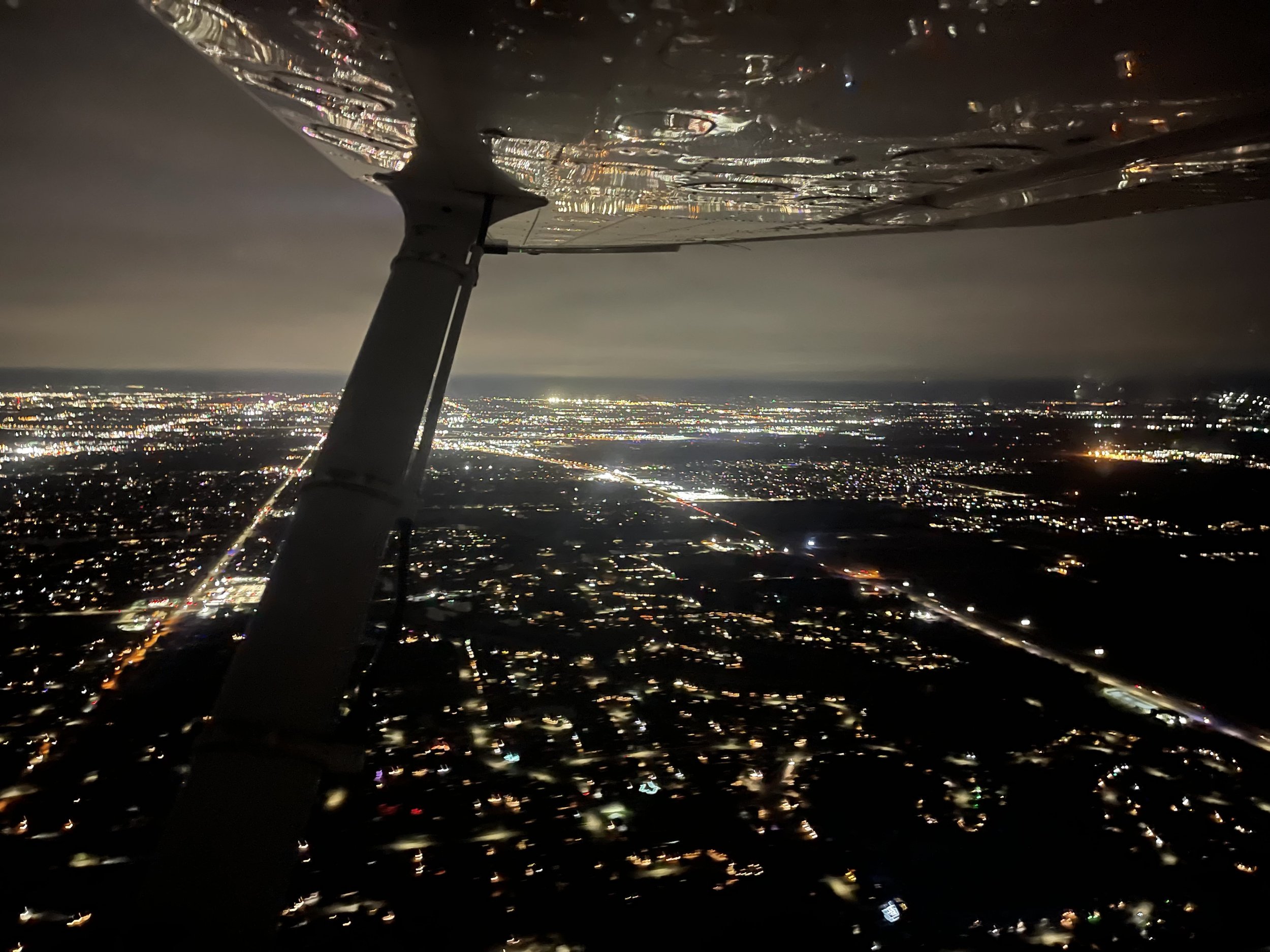
Flight Instructor Instrument Training
Step by step
-
Why become a flight instructor?
Unlock a rewarding career that blends your passion for aviation with the joy of teaching. As a flight instructor, you'll build valuable flight hours, enhance your skills, and inspire the next generation of pilots. Enjoy the flexibility of setting your schedule, the satisfaction of watching your students succeed, and the opportunity to continuously learn and grow. Make a significant impact on aviation safety while advancing your own career.
-
Eligibility
The following requirements for a Flight Instructor Certificate must be met:
Must be at least able to read, write, and understand English.
Must be at least 18 years old.
Must hold a valid a commercial pilot certificate with an instrument rating.
Must hold a valid FAA third class medical (or higher)
-
The Process
Our CFII training program is designed to equip aspiring instrument flight instructors with the knowledge, skills, and confidence needed to excel in aviation instruction. The program is divided into two key phases:
Ground Instruction: Mastering the ACS
The first phase of our CFII training focuses on comprehensive ground instruction, covering all elements of the Practical Test Standards (PTS) for instrument flight. You will receive expert guidance in:
Instrument Theory and Navigation: Deepen your knowledge of IFR procedures, navigation systems, approach plates, and enroute charts to ensure your mastery of instrument flight concepts.
Weather Analysis and Decision-Making: Learn to interpret weather data for IFR conditions and teach students effective aeronautical decision-making.
Regulations and Safety Protocols: Cover FAA regulations specific to instrument flight and safe operating procedures under IFR.
Teaching Techniques for Instrument Students: Develop strategies for explaining and demonstrating complex IFR concepts, ensuring you can adapt your instruction to meet individual student needs.Our ground instruction ensures you are fully prepared for the FAA Instrument Flight Instructor Knowledge Exam and practical test, while building the foundation for confident and effective teaching.
Flight Training: Applying Knowledge in the Air
Once you’ve mastered the ground phase, we transition to hands-on flight training. During this phase, you’ll focus on applying your knowledge in real-world scenarios, with an emphasis on teaching instrument flying. Key areas of training include:
IFR Maneuvers and Procedures: Practice teaching critical instrument maneuvers, including holding patterns, instrument approaches, and departure/arrival procedures.
Simulated Instruction Scenarios: Engage in realistic scenarios where you’ll act as the instructor, guiding students through instrument training exercises in both visual and simulated instrument conditions.
Emergency Procedures Under IFR: Build confidence in teaching students how to handle emergencies, such as instrument failure or unexpected weather conditions, during IFR flight.
In-Flight Evaluations: Receive detailed feedback from your instructor to refine your teaching techniques and ensure your readiness to instruct in IFR conditions.Our CFII training program is designed to produce skilled, confident instrument flight instructors who are ready to inspire and educate the next generation of instrument-rated pilots. Join us and advance your aviation career with our structured, supportive, and thorough CFII training program!
-
Aircraft and Cost
SK Flight Instruction is based out of Schilling Aviation Services in Salina, KS. We use two of their aircraft, rented directly out to the students, for flight training. Both aircraft are great for training and provide great learning environments. The aircraft rates are fixed to include fuel and insurance.
Cost Estimates
Average Training (20 Hours)
Aircraft Rental Cost: 10 hours x $165/hour = $1,650
Instruction Cost: 10 hours x $60/hour = $600
Ground Training Cost: 10 hours x $60/hour = $600
Additional Fees (Check-ride, two knowledge exams): $1000
Total Estimated Cost: $3,850As with any flight training, time and cost are dependent on a number of different factors:
Individual Progression: Each student progresses at their own rate, some require more practice and time with certain items. Meeting more frequently can help students gain proficiency and reduce the total hours needed during CFII training.
Financial Considerations: A higher frequency of lessons and consistent practice can lead to faster progress, however it requires a stronger financial commitment.
Study and Preparation: Diligent study of aviation subjects can enhance understanding and reduce the need for repeated lessons. Preparing for lessons ahead of time by creating and practicing “lesson plans” can reduce instruction time needed.
Weather and Aircraft Availability: Poor weather can delay training and make it more difficult to fly frequently.
Personal Schedule: Students with flexible schedules may find it easier to complete training quickly, while those with a limited schedule may find it more difficult to dedicate time.Cancellation Policy
Students are expected to show up on-time and prepared for each flight lesson. Students are required to cancel their flight within 24 hours of the block time, if necessary. There will be a $60 no-show/late cancellation policy incurred for each hour of the scheduled training. Exceptions may be made on a base-by-base case.
